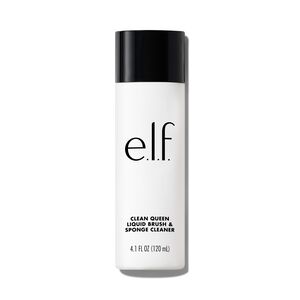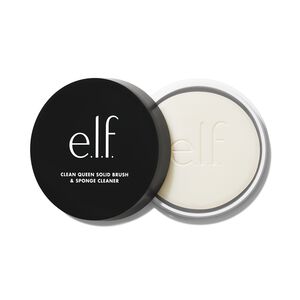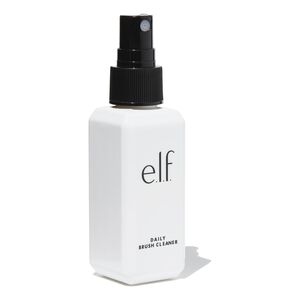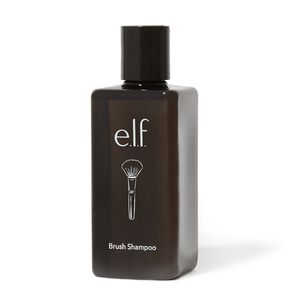
BEST MAKEUP BRUSH CLEANSER FAQs FROM E.L.F.
Refresh, reshape & restore your brushes and sponges back to brand-new status with gentle makeup brush cleaners.
Cleaning your makeup brushes is an important step in your beauty routine that many people put off way longer than they should. Dirty makeup brushes are caked with old makeup, bacteria, dirt, and oil, which can lead to clogged pores.
Ideally, you should be deep cleaning your face makeup brushes (especially ones used for liquid products) at least once a week with a makeup brush cleaner shampoo. Eyeshadow, bronzer, and blush brushes should be cleaned every two weeks. It’s also good practice to mist your bristles with a daily brush cleaner spray before doing your makeup to remove any surface debris and prep your brushes for a smooth application.
A good rule of thumb: if there is visible makeup on your brush bristles, it's time for a cleaning!
If you’re wondering if it’s time for a brush cleaning, the answer is yes. Not only do clean makeup brushes help to protect your skin, but by cleansing your makeup brushes helps them last longer and perform better during each makeup application. To properly clean your makeup brushes make sure to do the following:
-
Rinse your brush head (bristles only) under running lukewarm running water to remove surface-level makeup and grime.
-
Fill a bowl with warm water and add a brush cleaner, then swirl the head of each brush in the sudsy water.
-
Run the bristles across a textured surface or a makeup brush cleaning glove, if you have one, to get a deep clean and straighten out the bristles.
-
Rinse bristles under running water again until the water runs clear off the brush.
-
Make sure to lay brushes flat to dry on a towel.
If your brushes are caked in old makeup, oil, and debris, you can use a gentle dish soap to effectively cleanse your bristles. However, make sure you read the ingredient list first: if you use a soap that contains harsh solvents or has a high alcohol content, this can ruin your brushes by loosening the glue that secures your bristles into the handles. To cleanse your brushes (natural and synthetic) properly with a peace of mind, you can use a dry makeup brush cleaner, makeup brush cleaner shampoo, or solid makeup brush cleaner that’s specially designed and formulated for this task.
Read more about How to Use Makeup Brush Cleanser to to Clean Your Brushes.
Even if you’re diligent about cleaning your makeup brushes, they don't last forever. There is no exact timeline to replace them, but the typical lifespan of a makeup brush is about one-to-three years. Replace your makeup brushes when you notice signs of wear, damage, shedding ,and or broken bristles, not applying your makeup smoothly or if they are causing skin irritations.



